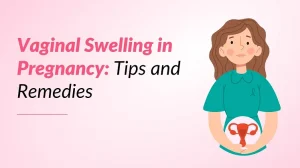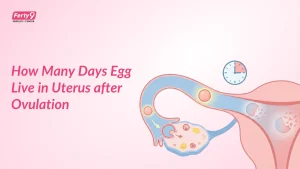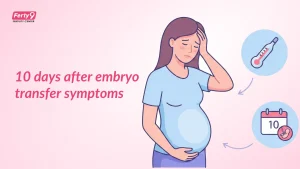Infertility has become a growing concern in India. It is a condition characterised by the inability to conceive or maintain a pregnancy to term after one year of regular, unprotected intercourse for women under 35 years of age, and six months for women over 35 years.As the country grapples with this issue, it is crucial to understand the prevalence, causes, and available treatments to address this challenge effectively.
Also read: Exploring the Decline in India’s Fertility Rate
What is the Infertility Rate in India?
The infertility rate in India is concerning and demands attention. According to a study by the Indian Society of Assisted Reproduction, approximately 10-14% of the Indian population suffers from infertility. This rate varies across different regions, with the urban populace generally experiencing higher rates than rural areas.
Also read: Experts Warn of Potential Birth Rate Decline in India by 2050
What are the Primary Causes of Infertility in India?
Various factors can contribute to infertility, including genetic, environmental, and lifestyle-related causes. In India, some of the primary causes include:
- Delayed childbearing
- Unhealthy lifestyle choices (e.g., smoking, excessive alcohol consumption, poor nutrition)
- Stress and environmental factors
- Sexually transmitted infections
- Underlying medical conditions
Also read: Did You Know 1 in 6 People Globally Are Affected by Infertility?
Prevalence of Male Infertility in India
Male infertility contributes heavily to the overall infertility rates in India. Several factors are responsible for male infertility, including:
Varicocele
It is defined as an abnormal enlargement of the veins within the scrotum, which can impair sperm production and quality.
Problems Ejaculating
Certain medical conditions or psychological factors can interfere with a man’s ability to ejaculate correctly, leading to infertility.
Imbalances in Hormones
Hormonal imbalances such as low testosterone levels or elevated prolactin levels, can impact sperm production and quality.
Tumours
Tumours affecting the testicles, pituitary gland, or hypothalamus can disrupt the normal hormonal balance and impair fertility.
Sexual Dysfunction
Erectile dysfunction or premature ejaculation makes it difficult to conceive naturally.
Infection
Infections, such as epididymitis or orchitis, can cause scarring and blockages, leading to infertility.
Azoospermia
Azoospermia is a condition where no sperm is present in the semen, which various factors, including genetic disorders, hormonal imbalances, or obstructions in the reproductive tract, can cause.
Oligospermia
Oligospermia refers to a low sperm count, which can reduce the chances of successful fertilisation.
Prevalence of Female Infertility in India
Female infertility is another significant contributor to the overall infertility rates in India. Several factors can lead to female infertility, including:
Polycystic Ovary Syndrome (PCOS)
It is a hormonal condition causing irregular menstrual cycles, ovulation problems, and infertility.
Hypothalamic Dysfunction
Disorders affecting the hypothalamus, a region of the brain that regulates hormone production, can disrupt ovulation and lead to infertility.
Primary Ovarian Insufficiency
Also called premature ovarian failure, occurs when the ovaries stop functioning in a healthy manner as they used to do earlier before the age of 40, leading to infertility.
Prolactin Overproduction
Excess production of prolactin, a hormone produced by the pituitary gland, can interfere with ovulation and cause infertility.
Fallopian Tube Damage
Damage or blockages in the fallopian tubes can be a hurdle for an egg to reach the uterus, making conception difficult.
Endometriosis
Endometriosis is when the endometrial tissue (the uterus lining) grows outside the uterus, potentially affecting fertility.
Causes from the Uterus or the Cervical Region
Abnormalities or conditions affecting the uterus or cervix, such as fibroids, polyps, or cervical stenosis, can contribute to infertility.
Treatments Available for Infertility in India?
In India, various treatments are available for addressing infertility, depending on the underlying cause. Some common treatments include:
- Fertility Drugs: Medications like clomiphene citrate or gonadotropins can stimulate ovulation in women or increase sperm production in men.
- Intrauterine Insemination (IUI): IUI procedure involves placing sperm directly into the uterus during ovulation to increase the chances of fertilisation.
- In Vitro Fertilisation (IVF): IVF involves retrieving eggs from the woman and fertilising them with sperm inside a laboratory setting and then placing the resulting embryo(s) into the uterus.
- Intracytoplasmic Sperm Injection (ICSI): ICSI is a specialised form of IVF where a single sperm is placed directly into the egg to achieve fertilisation.
- Surgical Treatments: In some cases, surgical procedures may be recommended to correct structural abnormalities or blockages in the reproductive tract.
- Assisted Reproductive Technologies (ARTs): These include various advanced techniques like preimplantation genetic testing, egg or sperm donation, and gestational surrogacy.
It’s important to note that the success rates of these treatments can vary depending on factors such as age, underlying medical conditions, and the specific cause of infertility.
Find Hope and Solutions for your fertility issues — Explore Our Comprehensive Services
PICSI Treatment
Fertility Preservation Service
Blastocyst Culture & Transfer Treatment
Conclusion
Infertility is a significant challenge in India, affecting a substantial portion of the population. While the causes can be multifaceted, ranging from lifestyle factors to underlying medical conditions, various treatments are available to address this issue. It is crucial to raise awareness, destigmatise infertility, and provide accessible and affordable healthcare services to support couples struggling with infertility.




























